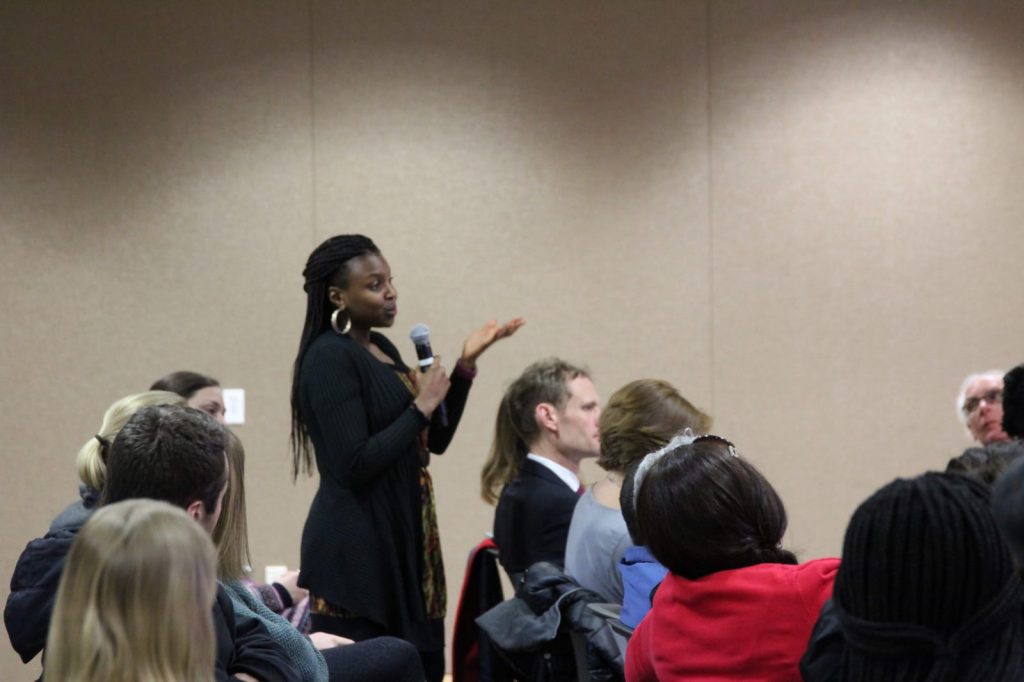The Socio-economic and Cultural Response to COVID -19 By Women in The Gambia
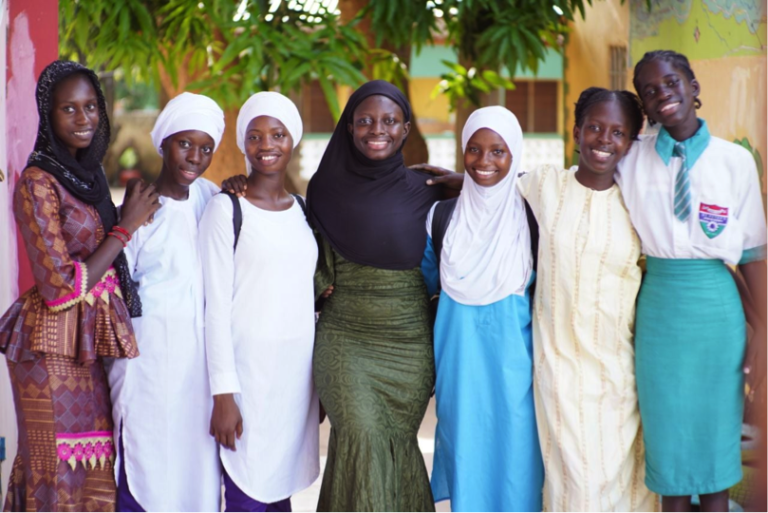
Khadeeja Haddy Sarr, Research Fellow, Youth, Gender & Vulnerability Policy Lab
skhadeeja@africacfsp.org
Currently, women and girls in The Gambia are taking robust action to contain the spread of coronavirus (COVID-19) nationwide. This piece draws attention to the pivotal work of two women, Ramatoulie Jallow, a public health consultant, and Mam Yassin Sarr, founder of Starfish International, a non-profit organisation that focuses on leadership and education for girls. It will address the importance of inclusivity and civic participation of women and girls in fighting the global pandemic. Moreover, this paper sheds light on local efforts by Ramatoulie and Mam Yassin as they mitigate the spread of the pandemic by considering the socio-economic and cultural implications of their work at local and community levels.
In March 2020, the World Health Organization (WHO) declared coronavirus to be a global pandemic. Only a few countries in Sub-Saharan Africa had reported cases of the virus at that time. As of June 2020, Africa had the lowest number of reported coronavirus cases.
Numbers Reported by WHO – June 1, 2020 | ||
Globally | 6,057,853 cases | 371,166 deaths |
Africa | 104,242 cases | 2,638 deaths |
America | 2,817,232 cases | 160,514 deaths |
Eastern Mediterranean | 520,137 cases | 12,627 deaths |
Europe | 2,159,791 cases | 180,594 deaths |
South East – Asia | 272,512 cases | 7,743 deaths |
Western Pacific | 183,198 cases | 7,037 deaths |
The first case of COVD-19 in The Gambia was reported on March 17, 2020. By mid-August, a total of 1,623 cases had been reported (1,269 active cases, 304 recovered, and 50 deaths). Within 12 days, a staggering number of 93 deaths were reported in The Gambia. These are alarming numbers for a country with a population of approximately 2.42 million.
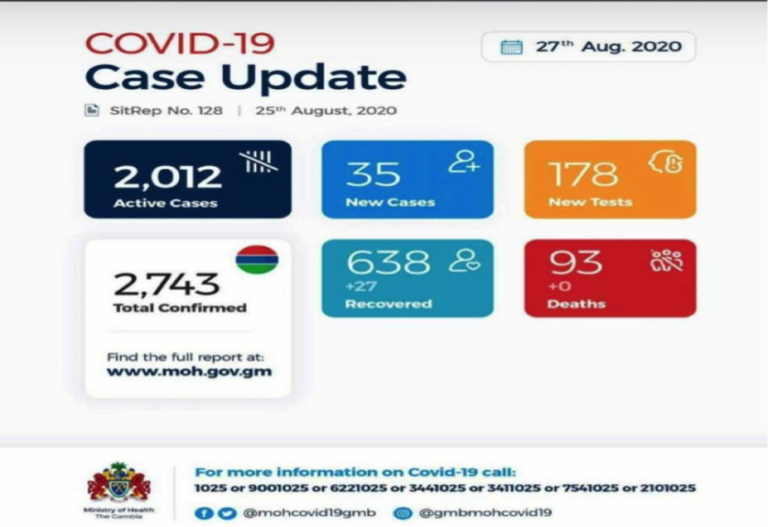
Thus far, the majority (80%) of coronavirus testing across Africa has been carried out in ten countries (South Africa, Morocco, Ghana, Egypt, Ethiopia, Uganda, Mauritius, Kenya, Nigeria, and Rwanda). As a result, accurate numbers of coronavirus cases across the continent remain largely unknown due to the lack of widespread available testing. The lack of coronavirus testing in The Gambia most likely indicates that infection rates are significantly higher than reported. Moreover, the lack of testing has exacerbated the crisis, and hindered attempts to combat it. Despite response efforts implemented by The Gambian government to curb the pandemic, the situation has exposed deeper socio-economic challenges that impact procedures such as quarantining and self-isolation.
COVID-19 and Communications Effort
As a result of limited resources and access to health care, The Gambia developed its plan of action to ensure that the nation’s population is educated and receives accurate information about COVID-19. Ramatoulie Jallow, a Gambian public health consultant living full-time in Cameroon, found herself stuck in her home country when visiting in March. Looking to lend her support, she volunteered her time and efforts with the Gambian Ministry of Health and took a leading role in disseminating information about the pandemic. According to her, “Information is power,” positing that the spread of misleading information related to COVID-19 hinders attempts to fight it.
Ms. Jallow explains that the fight against COVID-19 should take socio-economic and cultural structures into account to successfully contribute to health policies and intervention plans in fighting the pandemic:
If you tell people in The Gambia, especially women, to stay at home, you overlook other problems which contributes to the spread of the disease. For example, how are people going to eat, or survive? How are parents who live on a daily income going to feed their children? How are people with no money going to afford masks to protect themselves and others?
Many households do not have access to basic needs like food, shelter, or spaces to self-isolate, all crucial in fighting the pandemic. This has doubtlessly contributed to the worsening circumstances in the country.
Through her involvement with the Women’s Economic Imperative (WEI), Ms. Jallow co-led a digital COVID-19 communications campaign to deliver health messaging. The unique approach of this global video campaign, titled “If I Live, You Live” included video clips in Wolof, ensuring that non-English speakers understood the important information being conveyed.
Recently, Ms. Jallow participated as a guest panelist discussing the COVID-19 response in The Gambia alongside other young Gambian professionals and hosted by the popular podcast Wakthan Webinar Series. “We spoke to the people,” she says, “and we centered our solutions whilst considering their livelihoods, we spoke in a language and terms that people could resonate with.”
In addition to her work mentioned, Ms. Jallow is a member of Pan African Women in Health (PAWH), an organisation that brings together women from Africa – grooming the next generation of female leaders in the health sector. As a member, Ms. Jallow continues to actively engage and educate people about the pandemic.
Starfish International – Local Mobilization to Fight Coronavirus
Local non-profit organisations in The Gambia are actively participating in halting the spread of the virus, and Starfish International is one such organisation. In ordinary times, Starfish International’s main aim is to educate the next generation of female leaders in The Gambia. This enables females to become agents of change as they tackle local issues that impact their communities. On an annual basis, Starfish International works with 100 girls and 35 boys from grades 7 to 12 (ages 11-19) in 13 communities.
The organization also runs literacy programs for adults who dropped out of school and are interested in learning basic English and Mathematics. Many of these adults pursue their studies at the tertiary level. The organisation aims to recognize the needs of vulnerable groups of people and identify solutions tailored to fit the socio-economic structure within their communities.
The co-founder of Starfish International, Mam Yassin Sarr explains,
It is important for our country to design a curriculum for marginalised and vulnerable groups of people. Our strategy is not to inform people what to do. People do not want to be told what to do. Instead, we work closely with them. We design plans that fit their livelihoods based on the resources available to them.
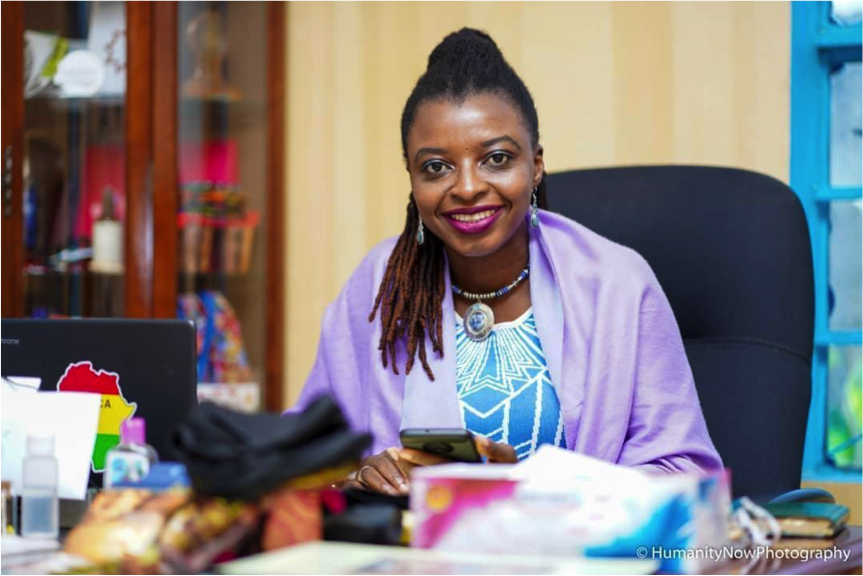
Mam Yassin expands, “the main challenges in mitigating the spread of the pandemic in The Gambia are limited resources.” Mam Yassin explains that COVID-19 has exposed and increased the magnitude of several socio-economic and cultural challenges in The Gambia which need to be tackled alongside the fight against the pandemic. On a cultural level, Gambians have been told to change their way of living and observe social distancing, a challenge in a society that places high value on collective action and where many live in close quarters. Mam Yassin points to the reality that there may be several people within a household sharing rooms. She states:
Let me give an example, we know that in most households in the Gambia, several people share bedrooms or several families live in the same compound. Yet, we expect people to social distance and stay six feet away from one another. This is impossible in Gambian households. To tackle these issues, we work with households and try to find space in their compound for isolation. It might be a balcony that can be used or develop a plan within the compound that benefits everyone. Social distance might work in some places, but in most places, we need to work with people to find solutions.
Aside from the health implications of COVID-19, nations are also beginning to understand the socio-economic impact on their communities. The women at Starfish International work closely with local populations as they apply their response efforts. National health policies are strained with inaccessible resources necessary for this pandemic and weak healthcare systems, a socio-economic problem. Therefore, Starfish International, Ms. Jallow, and other local and national partners were part of a major fundraising campaign spearheaded by the Wakhtan platform. The collective effort of the campaign was to provide sanitary equipment, face masks, food for staff at hospitals, and other essential supplies, i.e., personal protective equipment (PPE).
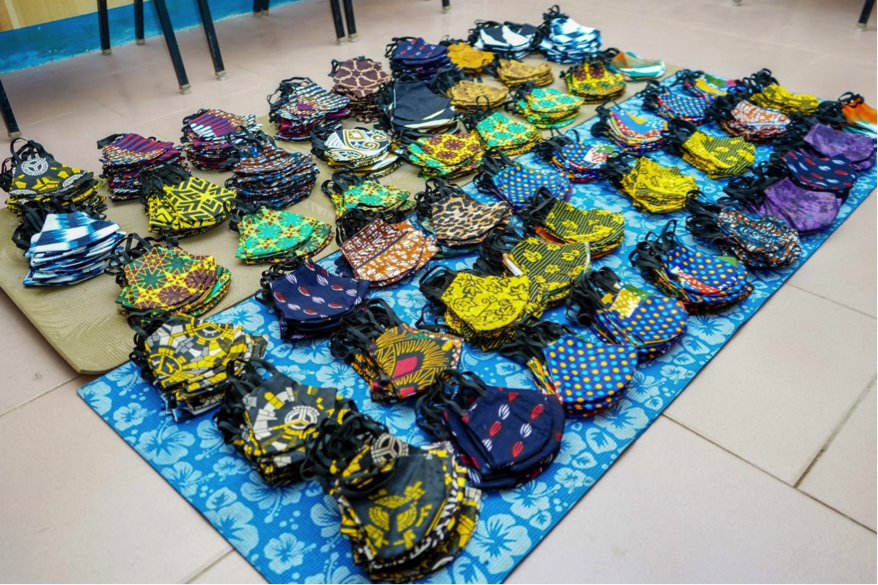
Campaigns by organizations like Starfish International suggest that local organizations are essential in fighting the pandemic. As stated by Mam Yassin: “It’s not I am my sister keeper; it is I am my sister. We are in this together.” Mam Yassin concluded, “I want the girls to become leaders, I tell them if you want to be a leader you have to act like one. They have all stepped up as leaders, especially during the pandemic.”
Toward Collective Engagement and Solidarity
The current COVID-19 situation in The Gambia has led to collective engagement and solidarity with the likes of Ramatoulie Jallow and Mam Yassin taking action and becoming agents of change. Their actions, during the pandemic, highlight the importance of connecting social, cultural, and economic structures in efforts to curb the pandemic. The leadership shown by these two women suggests that comprehensive strategies engaging communities and designed with creative solutions to the pandemic are key mechanisms to containing COVID-19 in The Gambia. This paper highlights the significance of local inclusivity, participation, and engagement in fending off COVID-19. Moreover, engaging women as actors of change whilst designing a successful community is essential in ensuring that vulnerable groups of people are protected whilst encompassing their social protection and basic needs. However, the engagement of women needs to move beyond the community level. Broadly speaking, women need to be engaged at a policy level as key decision-makers.


